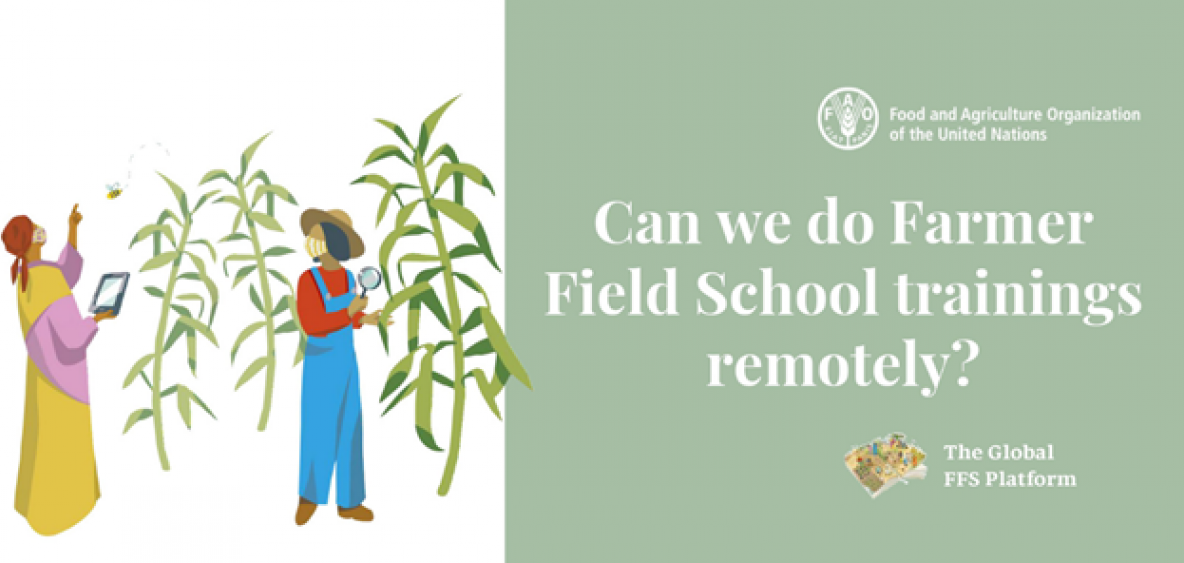 Credit: The Global FFS Platform from the original presentations.
Credit: The Global FFS Platform from the original presentations. Remote learning is more than just the future; it’s now been widely adopted and is connecting learners with facilitators across the World. Can Farmer Field School trainings, which are traditionally field-based, adapt to this new environment? And how can we keep them successful?
The ways people connect and communicate were challenged and changed in 2020 with the onset of the COVID-19 pandemic. Adapting to remote working environments was a learning curve for many, but luckily, adaptive project management is central to the Resilient Food Systems (RFS) programme and we persisted, nevertheless.
Adaptive management was a recurring theme at the 2022 RFS Annual Workshop in September 2022, with countries sharing their on-the-ground approaches to knowledge dissemination. For example, the RiceAdvice and WeedManager apps have become invaluable tools for rice farmers in Nigeria, and SMS technology is bringing project teams and farmers together in Kenya and Eswatini, even from a distance.
RFS Regional Hub partner the Food and Agriculture Organisation of the United Nations (FAO) foreshadowed the shifts to come when they organised a technical workshop on Farmer Field Schools (FFS) and Digitalization in December 2019. The event sought to share opportunities, experiences and lessons learned through integrating digital technologies in FFS and other similar approaches, laying the groundwork for experience sharing that would become extremely necessary a few years later.
On 23 June 2022, the Global FFS Platform hosted the event Can we do Farmer Field Schools training remotely? This meeting brought together FFS practitioners from across the Globe who have used remote training tools during the COVID-19 pandemic to implement FFS training for facilitators and master trainers.
The FFS approach is a participatory method of learning where farmers engage in field exercises that foster discussions, decision-making and learning by doing. Facilitators and master trainers offer support and a safe environment for learners to ask questions and learn from each other about the issues that most affect their communities, drawing from indigenous knowledge and integrating newly learned technologies where appropriate and relevant.
Remote learning for facilitators and trainers has been a useful backup when COVID restrictions or other unforeseen disruptions limit travel and meetings. During the June 2022 session, presenters from FAO and Oxfam Novib gave an overview of what this looked like in their settings.
The Oxfam Novib experience on trainings for nutrition was adaptive in that they adopted to new remote technologies, like the Google Classroom breakout groups during their Farmer Seed Production & Marketing online class, over the course of the training itself. This shows that if something isn’t working, it’s never too late to try something else!
FAO Animal Production and Health Division shared about their FFS on poultry and antimicrobial resistance, as well as their e-learning courses introducing the FFS approach and guiding implementation of FFS in communities.
A panel discussion, open dialogue and question and answer opportunities expanded on the sharing during the session, leading to some useful conclusions about how the Global FFS Platform can make the most of technology going forward, and drawing attention to barriers that need to be overcome. It seems like we can indeed conduct these trainings remotely, and with great success if done right. Here are a few tips from the session that make for a good place to start:
Subscribe to our monthly newsletter to receive updates on stories directly from the field across all our projects, upcoming events, new resources, and more.